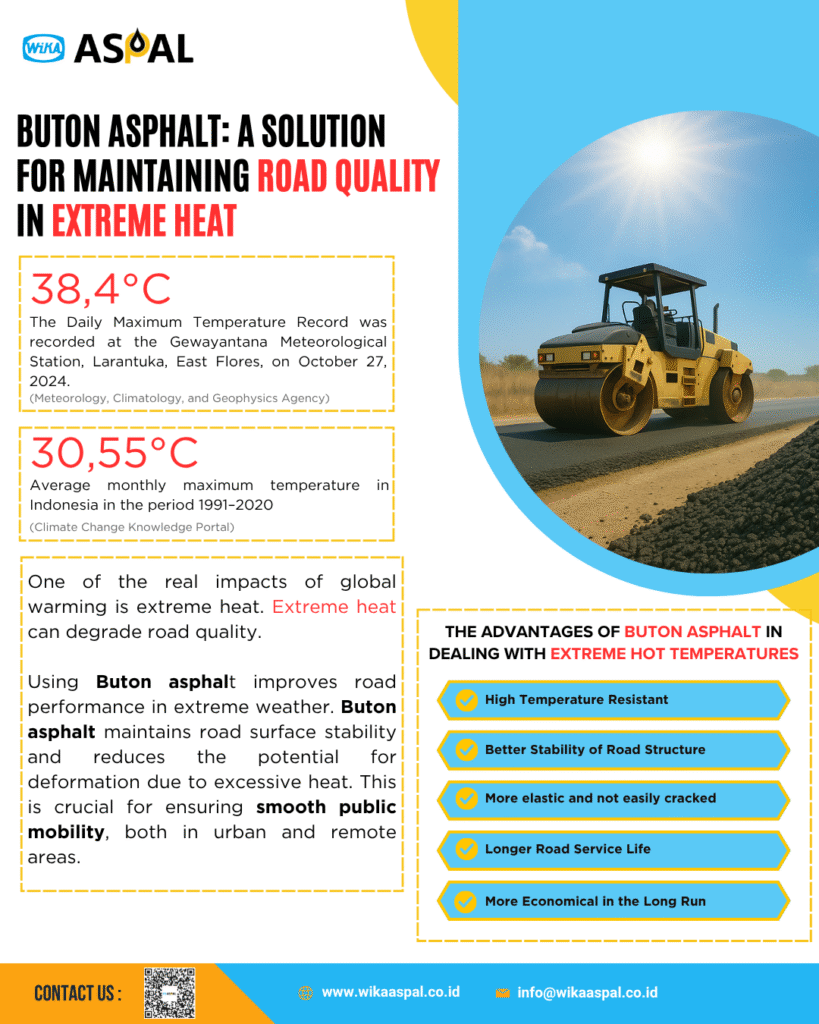One of the real impacts of global warming is the increased frequency of extreme heat. This phenomenon has a wide impact on various sectors, from agriculture to infrastructure. In the agricultural sector, extreme heat can cause drought and crop failure. Meanwhile, in the road construction sector, high temperatures risk degrading the quality of road infrastructure and endangering the safety of road users. Buton asphalt offers a solution for road materials that are more resistant to these extreme climate conditions.
As a tropical country with only two seasons, Indonesia already experiences significant heat even without the influence of global warming. During the day, the air temperature can be very hot and has the potential to accelerate road damage. Therefore, the use of Buton asphalt as an asphalt mixture is crucial to maintaining road durability in high temperatures.
According to data from the World Bank’s Climate Change Knowledge Portal, the average monthly maximum temperature in Indonesia from 1991 to 2020 was 30.55°C, with the highest temperature occurring in October (31.00°C) and the lowest in July (30.16°C). These temperatures reflect the ongoing pressure on road infrastructure. In these conditions, Buton asphalt has proven to provide superior durability due to its natural composition containing bitumen and minerals.

To address the challenges of extreme temperatures, Buton asphalt—a natural rock containing a mixture of bitumen and minerals—offers a solution. Buton asphalt B 5/20 improves stability at high temperatures (Lin, Luo, Yang, & Liu, 2011), making it the material of choice for maintaining road quality and durability in Indonesia’s hot, tropical climate.
Road damage caused by the use of materials that are not heat-resistant not only results in high maintenance costs but can also increase the risk of traffic accidents. Extreme temperatures can affect driver concentration, accelerate the rise in vehicle engine temperatures, and worsen road conditions. In this context, Buton asphalt plays a strategic role in improving road safety and reducing the risk of accidents caused by damaged road surfaces.
By using Buton asphalt, roads can be more resilient in extreme weather. Buton asphalt is able to maintain road surface stability (Lin, Luo, Yang, & Liu, 2011) and reduce the potential for deformation due to excessive heat. The use of Buton asphalt not only needs to be maximized domestically but also has great potential to support heat-resistant infrastructure in the global market. With its natural quality and superior mineral content, Buton Asphalt deserves to be the main choice for building stronger, more durable, and safer roads in facing the challenges of climate change.



